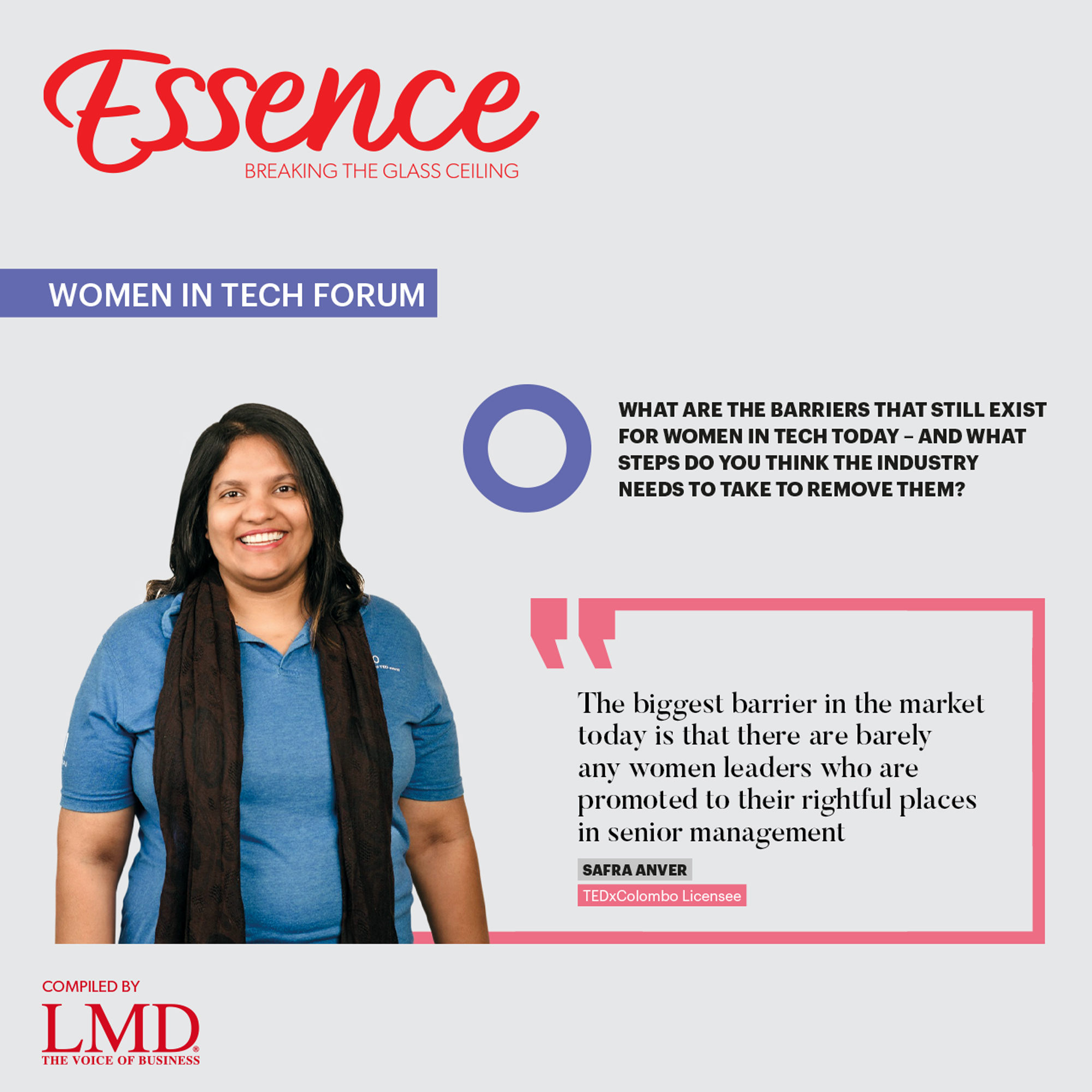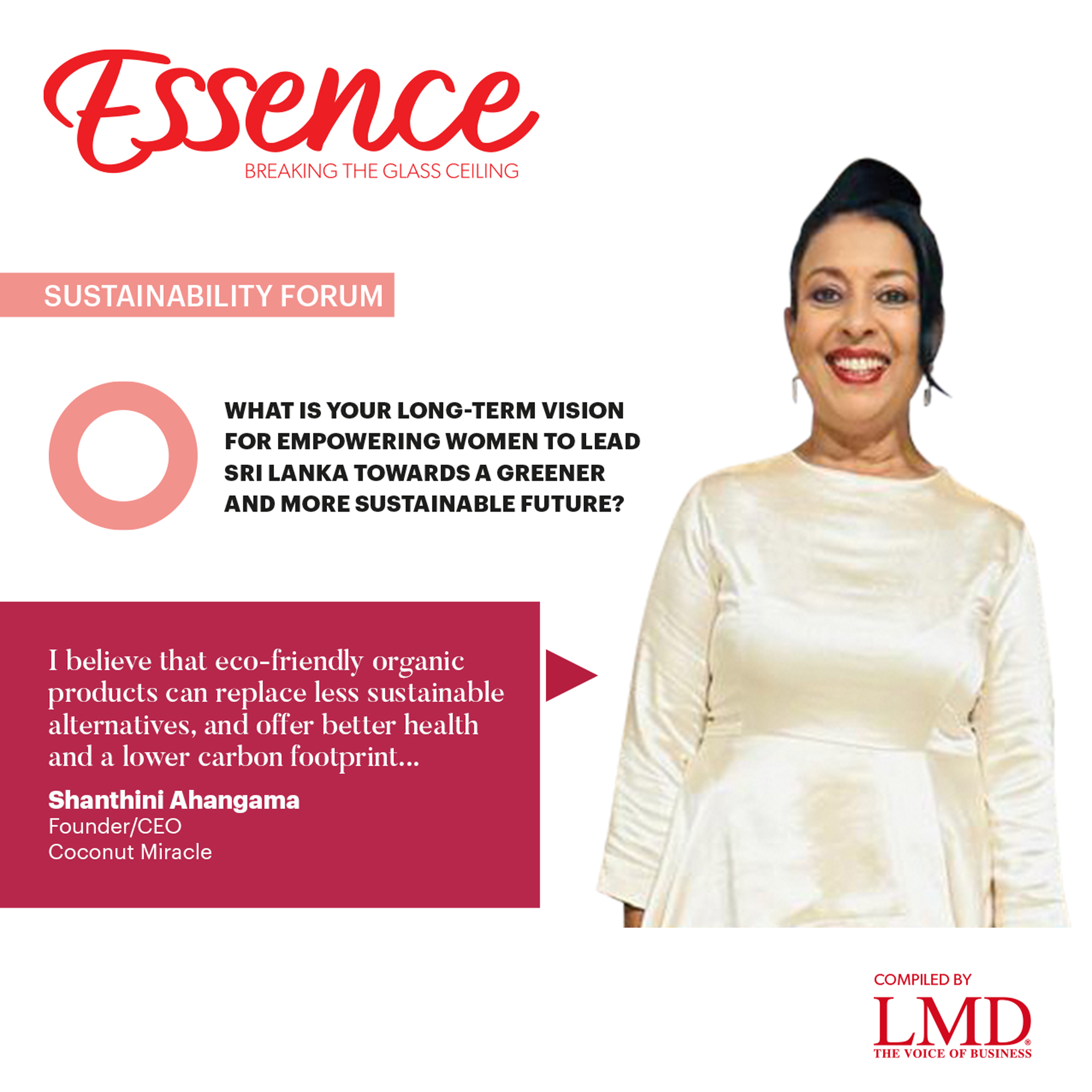ROCKLAND DISTILLERIES
 Q: What is your assessment of female empowerment in Sri Lanka?
Q: What is your assessment of female empowerment in Sri Lanka?
A: While we proudly say that the world’s first female prime minister is our very own Sirimavo Bandaranaike, female representation in the upper echelons of many business sectors continues to be considerably low.
Female empowerment and the progression of gender equality in Sri Lanka have remained dormant for over two decades, which contradicts the progressive rate of higher educational achievements and other social indicators of females within the country.
At the Rockland Group, we strive to lead the way and are very proud to have a greater representation of women at all levels including the leadership team, which comprises 33 percent female participation.
Rockland is a fourth generation family-owned company that has been led by the family for many years. However, the appointment of Kanchana Bamunuarachchi in May 2020 was a significant moment in the company’s history. She became the first non-family Group CEO to join the Rockland Group – this made her one of Sri Lanka’s first female Group CEOs.
Q: What are the hidden challenges facing women in business?
A: Women have faced inequality in the workplace in society across the world. While the West has progressed, in Asian countries, a woman’s role in society has been to be a housewife; and this has been an accepted way of life in Asian cultures.
Even today, working women often face hidden pressures from their families and husbands who find it hard to accept that females have the freedom of choice to work, and become successful managers and leaders. They prefer their wives and partners to stay at home.
Perhaps there’s also an unconscious bias about the capabilities of women in the workforce, thereby creating a glass ceiling hindering them as they climb the management ladder. In addition, the informal old boy network still thrives in some corporates, subliminally influencing recruitment and promotions – and thereby creating a barrier for women to reach the top.
At Rockland, we practise a zero tolerance policy for any form of discrimination, disrespect or hostility, and actively discourage the formation of old boy networks. This in itself is a form of empowerment for women in employment as they’re assured of mental well-being in the workplace.
We believe that the success of our people reflects the success of our company. There is simply no room for gender inequality in our workplace.
Q: In your assessment, is the gender gap closing in Sri Lanka?
A: Promoting equal opportunities of employment and education, and sources of income, for both men and women in the recent past has led to more harmonised families. This has helped reduce the male dominated image portrayed in our culture.
Now more than ever, financial pressures will be the key driver to urge more women to join the workforce while gaining the support of their families in the process. This will certainly accelerate closing the gender gap. However, facilities like day care need to be in place to support this transition.
As organisations grow more aware of gender inequalities, it is essential that board policies addressing female representation trickle down to human resource functions.
Q: What can organisations do to address the loss of women employees in mid career?
A: A female professional, particularly a mother, holds larger responsibilities that include commitments at work and those towards her family.
Developing an appreciation of this as a company and permitting work from home or flexi hours – wherever possible and appropriate – is crucial to retaining women employees in mid career, as this is when they’re most likely to be married and wish to have children.
We have found it equally important to offer paternity leave so that husbands can be at home in the early months of newborn children to support their families.
Women need to be treated equally if they’re to flourish, instead of leaving in mid career due to inequalities in the workplace where they cease to see a promising future.
At Rockland, we have strong policies and practices to ensure equal career progression opportunities for everyone. Transparent and fair performance appraisals aimed at celebrating company values, along with structured training and mentorship programmes to further employee progression, have been in place for many years.
Q: And finally, what is your vision for businesswomen in Sri Lanka?
A: Our vision is to create an environment where women thrive in their chosen areas of work and fulfil career dreams. Our hope is that one day, gender equality will be normalised through the hard work that organisations and authoritative bodies are now engaging in.
In turn, this will create a ripple effect that’ll drive a mental shift in how women are perceived. Then Sri Lanka as a nation will derive the best out of its very capable female workforce.





